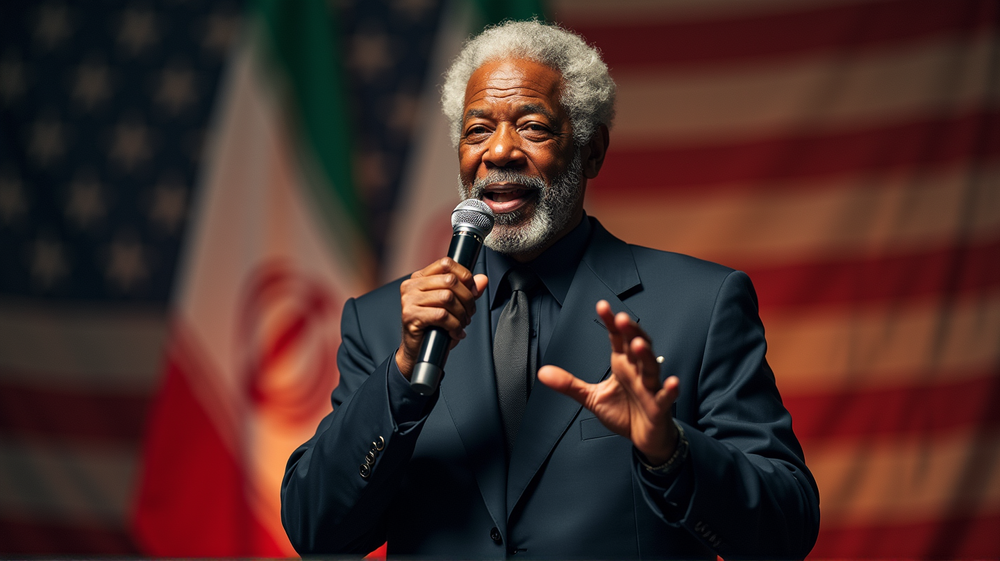Decoding U.S. Fears: The Unyielding Influence of Iran
The Unseen Power Dynamics
In a world dominated by complex geopolitical relationships, Iran stands out as more than just a nation — it represents an intriguing paradox of power and influence that takes the world stage beyond traditional political games. According to Lankaweb News, this compelling relationship is captured perfectly in a recent motivational speech inspired by Morgan Freeman that sheds light on why Iran is viewed as a unique threat by the United States.
A Legacy of Resilience
For decades, Iran has been under the burden of economic sanctions and international pressures, yet it has managed to retain a significant stature in the global community. What fuels this resilience? The answer lies not only in their robust geopolitical strategies but in the resilience and unity born out of nationalistic pride and cultural identity. This form of endurance does more than survive against odds; it signifies an unwavering commitment to maintaining autonomy and cultural significance.
Faith and Sacrifice
Iran is often painted as a spiritual threat rather than merely a political adversary. It is not just the arsenal or alliances that alarm others; it’s the foundational belief systems that unite its people which pose a conceptual threat to the prevailing global order. By rooting their foreign policy in religious conviction and cultural integrity, Iran challenges perceptions and sets itself apart as a nation that cannot be subdued easily, sparking a philosophical clash with nations like the U.S.
Rising Global Influence
Apart from its internal unity, Iran’s influence extends across the Muslim world. Its strategic alliances and investments throughout the region demonstrate a long-term vision that transcends immediate conflicts or temporary alliances. Iran’s ability to inspire and mobilize support within and beyond its borders underscores why it’s perceived as a formidable global actor with powerful ideological undertones that resonate widely, from grassroots movements to high-level diplomatic talks.
The Speech They Didn’t Want You to Hear
Morgan Freeman’s motivational speech, which explores these multilayered dynamics, invites the world to see Iran from a new lens — not merely as a geopolitical entity, but a significant cultural and spiritual competitor. It’s a perspective that encourages further exploration and better understanding of one of the world’s most complex international relationships. While the speech adds to the discourse around U.S. foreign policy, it also sparks intrigue, posing the fundamental question of whether the true challenge lies in confronting a nation or understanding the ideas that it represents.
This is why the coverage of U.S.-Iran interactions is not just diplomatic chess; it’s a cosmic interplay of diverse ideologies. As you dive deeper into this realm, you gain an appreciation for power dynamics that go beyond the obvious, an understanding that respects freedom of spirit, and possibly, just the way Freeman intended — a motivation for us all.




